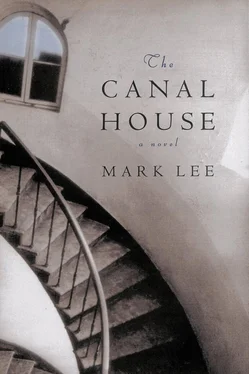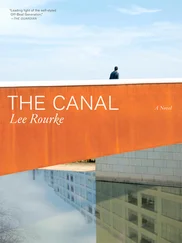The Lamb was a cozy pub with a low ceiling and sepia photographs of nineteenth-century actresses and political figures. There was no recorded music, dartboards, or drunken yobs. I liked the pub’s padded benches and the wrought-iron tables with a brass railing around the outside edge. If there was an earthquake or a bomb blast the little railing would keep your beer glass from falling onto the floor. After drinking a few pints, I would order supper and the food would come rattling downstairs in the pub’s dumbwaiter. I’d drink one last beer, then stagger back to the Ruskin to check my e-mail. No message from Daniel or Julia. No messages at all.
IN AUGUST, THE PHONE RANG at one in the morning and I fumbled for the handset. Daniel was calling from his desk at the Stampa Estera.
“How’s my favorite shooter?” he asked.
“I’m fine. Where are you? What’s going on?”
“I’m flying to Macedonia to cover the fighting. Julia’s back in London, running Hand-to-Hand.”
“In London? Is that okay with you?” I asked.
“The organization was having serious problems and Richard said they needed a temporary director. It looks like Hand-to-Hand is going to East Timor.”
“Are you still …” I didn’t finish the sentence.
“Julia and I are doing our jobs. We’re still together. Drop by the Hand-to-Hand office. I know she’d love to see you.”
I USED MY LAPTOP to go online and find out about East Timor. Four hundred miles north of Australia, it was a small, poor province of Indonesia on one half of a dagger-shaped island. The country had no economic or geopolitical significance. It was notable only for the intensity and duration of its suffering. The Portuguese had once controlled East Timor. They made a profit from the sandalwood trade and introduced the locals to Christianity. After the Portuguese Empire collapsed, the Timorese fought among themselves for a few months, then proclaimed their independence. Indonesia already controlled West Timor. With encouragement from the U.S. government, they decided to invade the rest of the island. Years of fighting between the Indonesian army and the pro-independence guerillas had killed thousands of people.
Now there was a new government in Indonesia and the president had allowed the East Timorese to vote on a possible secession. The Indonesian army wanted to hold on to the province and it secretly organized and armed Timorese militias. When UN observers arrived to supervise the referendum, the militiamen began killing anyone who was in favor of independence.
The next morning I walked over to the new Hand-to-Hand headquarters on Gracechurch Street, down the block from the Leadenhall Market. This was bank and insurance-company territory, the sort of place where businessmen in dark suits carried copies of the Financial Times . Most of the other relief organizations in London were housed in converted flats near Russell Square. When you visited them, you found a temperamental copy machine and an electric teapot in the bathroom. Richard must have either owned the entire building on Gracechurch or controlled the property on a long-term lease.
No one was at the reception desk when I got off the elevator so I pushed through the glass door. A tough-looking young woman with piercings in her eyebrows and nose was sitting in an office, talking on the phone. I asked for Julia and the woman pointed me down the corridor. Little slips of paper were taped to the doors. COMPUTER ROOM. STORAGE ROOM. BOOKKEEPER’S ROOM (WHEN WE HIRE ONE). The last door proclaimed DR. J. CADELL: ACTING EXECUTIVE DIRECTOR. Although it was a provisional title, I realized that Richard had won a significant victory. Julia was in his world, sitting in a London office building, rather than making love to Daniel in Italy.
She was on the phone when I walked in and motioned me to sit down. The room was filled with standard-issue rental furniture, barcode stickers still taped to the edges. The only decoration was a framed poster hanging on the wall, a silk-screen cartoon of a glamorous young woman looking annoyed. GENOCIDE IN THE BALKANS? The caption read. BUT WHAT ABOUT MY CAREER?
Julia finished her call and stepped around the desk. “Nicky! How nice to see you!” We hugged awkwardly.
“Big office.”
“We’re growing into it.” She sat back down at her desk and we both gazed out the window at the wall of buildings across the street. I could just see the spire of St. Peter upon Cornhill.
“Daniel’s going to Macedonia,” she said.
“Yes. He called me.”
“We used to talk on the phone every night. Now, it’s down to once every few days.” Julia glanced at me, wanting some kind of reaction, then looked away.
“You’re both very busy,” I said.
“Two more workers start on Wednesday. Three more in a week.”
Julia began to explain what she’d been doing for the last few weeks. At established relief organizations, the staff would have written memos and held committee meetings, but she had been forced to make all the major decisions on her own. With help from Richard’s bank she had bought relief supplies from wholesale companies in Australia and chartered a cargo ship to carry everything to Timor.
“What do you think, Nicky? I don’t have enough time to train idealistic people so it’s professionals all the way. That girl outside ran the phones for an out-call prostitution service. She’s very good under pressure, doesn’t take nonsense from anyone. Our transportation manager can actually repair a truck. I think he used to steal them.”
“All this sounds quite revolutionary.”
“I can tell them they’ve made a mistake and they don’t burst into tears. It’s quite wonderful, actually. No one on the staff has a therapist or a political agenda.”
“Maybe they’ll get that way later on.”
“There’s no later on. Everything’s happening right now. Most of the other aid organizations are cautious, hoping things will work out peacefully, but I’m not optimistic. The Indonesian soldiers have been giving weapons to the local militia.”
“So why are you going? What’s the point?”
“We’ll distribute food and medicine. I hope we can save some lives.”
“But why do you have to go? Couldn’t someone else handle the problem?”
“Yes. Definitely.” She paused. “But I feel like it’s my responsibility.”
“You’ve always been responsible, Julia. You’ve helped thousands of people all over the world. Maybe it’s time to retire and go home.”
Julia considered the question as the photocopy machine spat out pages in the next room. “I don’t have any excuses,” she said. “No one depends on me, Nicky. I don’t have a child or an elderly parent. I’m not running a business or teaching at a school. So when they show those pictures on television of sick children or people starving, I have to say to myself, ‘I can go there. I can help them.’ There’s nothing holding me back.”
“So you feel responsible because you don’t have responsibilities?”
Julia looked regretful for a few seconds, then tried to cover it up by checking an order form. “My life could have turned out a different way, but this is the present reality.” She tossed the form into a tray and became a surgeon again, disciplined and efficient. “You should always deal with the patient in front of you.”
The receptionist walked in with a fax from Australia and placed it on the desk. “I’m sorry,” Julia told me. “But I need to make some more calls.” She escorted me down the hallway and to the elevator. “What’s a stand-up guy, Nicky? That’s an American term, right?”
“It’s someone who won’t turn his friends in to the police.”
“Daniel told me that you’re a stand-up guy. I guess that means he trusts you.”
Читать дальше












